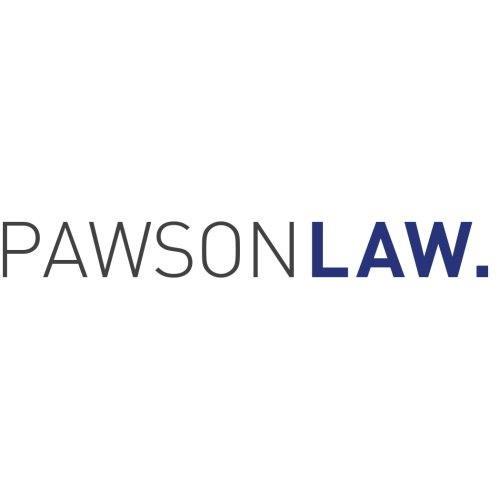Best Retirement Lawyers in New Zealand
Share your needs with us, get contacted by law firms.
Free. Takes 2 min.
Or refine your search by selecting a city:
List of the best lawyers in New Zealand
About Retirement Law in New Zealand
Retirement in New Zealand is primarily structured around the New Zealand Superannuation (NZ Super) and other retirement savings options like KiwiSaver. NZ Super is a government-funded pension available to eligible residents aged 65 and over. The amount you receive depends on your living situation and your personal income. KiwiSaver is a voluntary retirement savings scheme that provides individuals with a financial incentive to save for their retirement through regular contributions.
The legal framework surrounds eligibility for NZ Super, KiwiSaver entitlements, and the rules governing other personal savings and investment options. Understanding these laws can help individuals plan effectively for their retirement years.
Why You May Need a Lawyer
There are several situations where you might require legal assistance in the context of retirement in New Zealand:
- Eligibility and Entitlement Issues: Navigating the criteria for eligibility and dealing with disputes regarding entitlements to NZ Super or KiwiSaver.
- Estate Planning: Legal advice is important for creating and managing wills, trusts, and estates to ensure your assets are distributed according to your wishes.
- Tax Implications: Understanding the tax implications of various retirement savings options and how they might affect your overall retirement plan.
- Superannuation Agreements and Transfers: Guidance on the transfer of overseas retirement savings into New Zealand’s system.
- Financial Agreements: Drafting and reviewing financial agreements related to retirement assets, especially in the context of relationship property with partners or spouses.
Local Laws Overview
Key aspects of New Zealand laws related to retirement include:
- Eligibility for NZ Super: Residents need to have lived in New Zealand for a specific number of years, with at least five of those years taking place after the age of 50.
- KiwiSaver Act 2006: This act governs the rules and regulations around the contributions, withdrawal, and governance of KiwiSaver funds.
- Income and Asset Testing: While NZ Super is not means-tested, other benefits or assistance programs might be, influencing your overall retirement income strategy.
- Tax Laws: Understanding the tax responsibilities for retirement fund earnings and payouts.
- Protection from Exploitation: Laws designed to protect elderly individuals from financial abuse.
Frequently Asked Questions
What is the age of eligibility for NZ Super?
The minimum age for receiving NZ Super is 65, provided other residency criteria are met.
How is KiwiSaver different from NZ Super?
KiwiSaver is a personal retirement savings scheme that you contribute to during your working life, while NZ Super is a government pension paid upon reaching the eligibility age.
Can I receive NZ Super if I retire overseas?
It depends on the countries you plan to move to, as New Zealand has social security agreements with certain countries.
Are my KiwiSaver contributions taxed?
Contributions themselves aren't taxed, but the investment earnings within the scheme are subject to tax at your prescribed investor rate (PIR).
What happens to my KiwiSaver if I pass away?
Your KiwiSaver savings become part of your estate and are distributed according to your will.
Can I take a break from contributing to KiwiSaver?
Yes, after your first year in KiwiSaver, you can apply for a contributions holiday of between three months and five years.
How does the income tax work for NZ Super?
NZ Super is subject to income tax; the tax rate depends on your total income from all sources.
Can I get both NZ Super and KiwiSaver payouts?
Yes, KiwiSaver and NZ Super are separate, and you can receive both if eligible.
Is there any financial help available apart from NZ Super?
Apart from NZ Super, there may be other benefits like the Accommodation Supplement available depending on your circumstances.
What options do I have if my eligibility for NZ Super is denied?
You have the right to appeal the decision through various legal channels or seek legal assistance to review your case.
Additional Resources
If you're seeking more information, consider these resources:
- Commission for Financial Capability (CFFC): Provides education and resources regarding financial planning.
- Department of Work and Income (WINZ): Manages applications for NZ Super and related benefits.
- New Zealand Inland Revenue (IRD): Offers advice on tax obligations related to retirement.
- Age Concern New Zealand: An organization dedicated to the well-being of older individuals.
Next Steps
If you need legal assistance related to retirement in New Zealand:
- Consult a Lawyer: Contact a lawyer specializing in retirement or elder law to discuss your specific needs.
- Research: Look into various retirement planning options and familiarize yourself with your rights and responsibilities.
- Financial Planning: Consider consulting a financial advisor to align legal advice with financial planning.
- Documentation: Ensure that all pertinent documentation, such as wills or trusts, are updated and accurately reflect your intentions.
- Local Networks: Engage with local support networks or community services for additional support and advice.
Lawzana helps you find the best lawyers and law firms in New Zealand through a curated and pre-screened list of qualified legal professionals. Our platform offers rankings and detailed profiles of attorneys and law firms, allowing you to compare based on practice areas, including Retirement, experience, and client feedback.
Each profile includes a description of the firm's areas of practice, client reviews, team members and partners, year of establishment, spoken languages, office locations, contact information, social media presence, and any published articles or resources. Most firms on our platform speak English and are experienced in both local and international legal matters.
Get a quote from top-rated law firms in New Zealand — quickly, securely, and without unnecessary hassle.
Disclaimer:
The information provided on this page is for general informational purposes only and does not constitute legal advice. While we strive to ensure the accuracy and relevance of the content, legal information may change over time, and interpretations of the law can vary. You should always consult with a qualified legal professional for advice specific to your situation.
We disclaim all liability for actions taken or not taken based on the content of this page. If you believe any information is incorrect or outdated, please contact us, and we will review and update it where appropriate.
Browse retirement law firms by city in New Zealand
Refine your search by selecting a city.

















